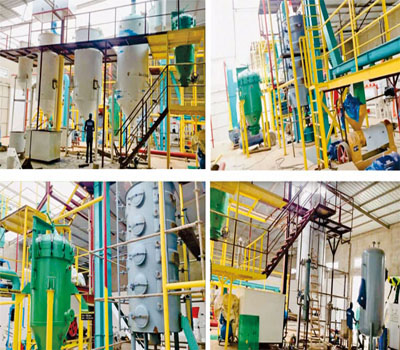The edible oil refining plant should pay attention to environmental protection in the production process
With the continuous improvement of global awareness of environmental protection, all walks of life are trying to reduce the impact on the natural environment, and edible oil refining plant is no exception. As an important part of food processing industry, edible oil refinery consumes a lot of energy in the production process, and emits a certain amount of waste gas, wastewater and solid waste. If not handled properly, these emissions may have a serious impact on the environment. Therefore, paying attention to environmental protection has become an important direction for the development of edible oil refineries.

In the process of edible oil refining, the common pollution sources include: waste water discharged in the production process, oily waste residue and waste gas generated by heating equipment.
First of all, waste water usually contains high concentrations of organic matter and oil, which will pollute the water body if discharged directly. Therefore, the edible oil refining plant needs to establish a perfect sewage treatment system to purify the waste water by physical, chemical and biological methods to ensure the discharge standard.
Secondly, oily waste residue is solid waste produced in the process of edible oil refining. These waste residues can be treated by resource utilization, such as extracting residual oil or making biofuel, so as to realize the reuse of waste and reduce the burden on the environment.
In addition, the exhaust gas generated by heating equipment during operation may contain particulate matter and other harmful gases. In order to reduce air pollution, enterprises can adopt efficient dust removal equipment and tail gas treatment technology, and at the same time use clean energy instead of traditional fossil fuels to reduce carbon emissions.
In addition to pollution control, edible oil refining plant can also improve resource utilization efficiency by optimizing technological processes and introducing energy-saving equipment. For example, adopting advanced continuous production technology can not only reduce energy consumption, but also reduce the generation of waste. At the same time, strengthening the environmental protection training for employees and improving the environmental awareness of all employees will also help promote the green production of enterprises.
In short, under the background of increasing environmental pressure, the edible oil refinery must take environmental protection as one of the core contents of enterprise development. Through technological innovation, resource recycling and management optimization, we can not only effectively reduce environmental pollution, but also enhance the social image of enterprises and achieve a win-win situation of economic and environmental benefits.
